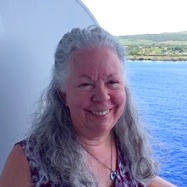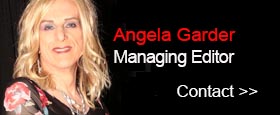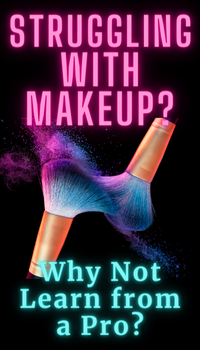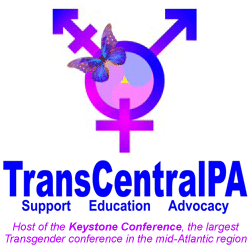An Interview with Publisher Margot Wilson
Publisher focused specifically on transgender manuscripts.
Margot Wilson is an anthropologist who retired from the University of Victoria in British Columbia, Canada, March 2018. Over the past 30-plus years, she has undertaken anthropological research in South Asia. She has lived in a bamboo hut with no running water and no electricity in a rural village in northwest Bangladesh, learning to be a village woman by living as one. Margot has also undertaken research at a shelter for abandoned women and children in Dhaka (the capital city) and at the Danish-Bangladesh Leprosy Missions in northwest Bangladesh. Since 2014, Margot’s long standing research interests in gender, personal narrative, and storytelling have led her to undertake life history research in collaboration with elders in the Canadian and American transgender communities. In 2017, she opened TransGender Publishing, a small independently owned book publisher and, the first Canadian book distributor focused specifically on publishing transgender manuscript topics.
I stumbled across Margot while perusing the Google Internet jungle. Funny what interesting things you can find and learn about the transgender (and crossdressing) way of life. I went on to have a lovely conversation with Margot. She is most certainly a person I hope and trust I will get to know even more in the future.
TransGender Publishing offers a wide range of books focusing on the transgender community, with many new titles scheduled to be introduced in 2021-22. Visit the website.
TGForum: As an anthropologist, you have led a fascinating life.
Ms. Wilson: My dissertation research was focused on women’s work in homestead gardens in Bangladesh. The expectation of anthropological research is that you live for a year in your field of study, immersing yourself in the culture you are studying—in my case learning what it is like to be a woman in the rural Bangladesh by living as one. I spent a total of two-and-a-half years living and doing research in Bangladesh. Approximately one year was spent living in a 15 by 25 sq. ft. bamboo house with a mud floor and rice straw roof, no running water, and no electricity in a remote rural village in northwest Bangladesh. I supported myself and my family by working as a consultant for a number of international development agencies in Bangladesh, including Care International, Winrock International, Helen Keller Foundation, and the Canadian International Development Agency. My husband and 18-month-old daughter accompanied me to Bangladesh, and in the final year of our stay, we adopted an orphaned girl from one of Mother Teresa’s orphanages in Old Dhaka (the capital city). After I began working in the Department of Anthropology at the University of Victoria in British Columbia, Canada, I continued to travel to and undertake research in Bangladesh for the next 11 years. This research included research at a shelter for abandoned women and children in the capital city and a study of leprosy patients at the Danish-Bangladesh Leprosy Mission in the northwest and north central parts of the country.
TGForum: You have published several papers based on your research and two books focused on women’s narratives. What have learned?
Ms. Wilson: My original dissertation research on women’s work in homestead gardens led me to become increasingly interested in the ways in which women understand their places in their families and communities and the ways in which they tell their stories. For me, stories are at the heart of anthropology. They demonstrate the perspectives that people, particularly women, hold on the world and their places within it. Women at the shelter for abandoned women and children were able to articulate their experiences in practical terms through their stories. Similarly, leprosy patients were able to demonstrate their experiences of disease stigmatization through the stories they told. During this research, the Canadian woman who had founded and administered the day-to-day running of the shelter for abandoned women and children retired to Victoria, where I live. I approached her to collaborate on the writing of her story of running the shelter. As it turned out, her mother had saved all of the letters that she had written during her time in Bangladesh. What a treasure trove of information. She and I discussed the letters at great length and, in the end, decided to publish them as is, as they reflected her unfolding experiences in real time, in a letter-by-letter sequence. I edited the letters and published them in 2012 (see Beyond Ideas of Wrong Doing: Betty Steinkrauss Brown’s Letters from a Bangladesh Orphanage and Shelter for Women and Children). During the preparation of that manuscript, I had a conversation with my mother about the interesting insight I had developed on the role of women in Canadian families, that is, taking on the responsibility for maintaining contact between family members through their correspondence. Hearing that, my mother remarked that she had kept all of my letters sent to her. Now, I have to confess that I had no conscious memory of ever having written letters to my mother. I had been away from home, first in Texas doing my PhD, then in Bangladesh doing my research, and then in Victoria teaching at the university. My family is from Ontario, Canada, but my memory was of keeping in touch by telephone. Nevertheless, she produced a large manila folder with not only all the letters that I had written to her but carbon copies of her responses to me as well. I later discovered that she had three more manila folders with her correspondence with my three sisters. I immediately began work on a new manuscript that contained much of that correspondence, which details the ongoing relationship between the five of us over an almost 40-year period. (See Daughter of the Spirit Correspondence of Margaret Graham Wilson, 2011).
TGForum: How did TransGender Publishing get its start?
Ms. Wilson: In 2014, I attended the first Moving Trans History Forward (MTHF14) conference at the University of Victoria, which was organized by my friend and colleague Aaron Devor, the Chair in Transgender Studies. On the final morning of the conference, there was an “Elder’s Panel” where pioneering trans elders, including Stephanie Castle, Jude Patton, Ariadne Kane, and others, spoke about their experiences of being transgender in the early days. I was struck by the depth of their experiences and the articulate ways in which they shared their stories. After the panel, I approached Aaron and expressed my concern that by definition these elders will leave us and that someone should be capturing these stories. I had the inclination, the training, and the ability to do the research, but how to proceed? Aaron in his greater wisdom said, “Talk to them.” So, I crept up to Jude, Ariadne, and Stephanie and asked if they would be interested in collaborating with me on writing their stories. Expecting to follow up with them after they had time to consider my proposal, in a week or two, I was astonished when all three said yes on the spot. Then, of course, I began to think, ‘what I had done to myself?’ It was the proverbial be careful what you wish for. In any case, I began talking to all three by Skype or telephone on a regular basis, usually weekly. I recorded the conversations, had them transcribed, and these data will be donated to the Transgender Archive at the University of Victoria for access by future scholars. I focused specifically on Stephanie because she was 90 at the time and the eldest of the three.
It was during my conversations with Stephanie that I discovered that she was a prolific author herself of three non-fiction books and nine novels. All are still available from TransGender Publishing. She had opened her own publishing company but was bemoaning the fact that her children were not interested in her publishing interests, and she expressed concerns about what would happen when she died. On the basis of that conversation, we began discussing the possibility of opening a parent publishing company together, a kind of umbrella company under which she would bring her company (Stephanie Castle Publications, SCP) as a vehicle for fictional writing by trans authors and about trans issues, and I would bring mine (TransGender Publishing, TGP) as a vehicle for publishing trans non-fiction and life stories. We agreed to call the new company Castle Carrington Publishing (CCP), Castle being her mother’s maiden name and Carrington being my mother’s maiden name. Sadly, Stephanie passed away before we could open the company, but I decided to go ahead and open it as a kind of memoriam for Stephanie. Her life story (see Girl in the Dream: Stephanie (Sydney) Castle Heal, A Transgender Life) was the first book published by TransGender Publishing in 2018, just in time to be launched at MTHF18.
When Stephanie passed, her son, who was her executor, signed Stephanie Castle Publications over to me. Subsequently, we discovered that Stephanie still held 50% interest in another publishing company (Perceptions Press), which she had sold to another trans woman living in Vancouver. When I contacted that person to discuss our partnership, she was on the verge of retiring and subsequently signed over her share of Perceptions Press along with all of the back stock.
TGForum: You were quite an admirer of Stephanie Castle.
Ms. Wilson: One of the fortuitous effects of my research methodology, which is to undertake multiple conversations with my research participants over a long period of time. For example, I am still speaking to Jude Patton on a weekly basis, since 2014. The research relationship has deepened and turned into an enduring friendship. I spoke to Stephanie every Thursday night at 9 p.m. and visited with her in Victoria and Vancouver on numerous occasions beginning in the summer of 2014, up until she passed away in the spring of 2017. I have her framed portrait in my office, and I think about her every Thursday evening, if not every day. She was a remarkable woman, not only a writer and publisher but also an important and central person in the trans community in the Vancouver area. She introduced me to many people in the community over the time I knew her, some of whom I am working with on books today. She was one of the founders of the Zenith Foundation (see her book The Zenith Experience: Encounters and Memories in a Transgender Setting). In fact, she ran the Zenith Foundation telephone hotline out of her home for many years, and she was a staunch advocate on behalf of trans individuals, including those incarcerated in the prison system (see her book with Katherine Johnson, Prisoner of Gender). I miss her every day.
TGForum: What services does TransGender Publishing offer authors?
Ms. Wilson: TransGender Publishing (TGP), along with the other imprints of Castle Carrington Publishing Group, Stephanie Castle Publications, Perceptions Press, and All Genders Press, which I opened in 2020, offer a full range of writing support, editorial services, and publishing. I prefer to work closely with authors to bring their stories into the world. I like to tell people that I am a book midwife. TGP focuses on trans life stories and edited non-fiction books, while SCP focuses on trans fiction. Perceptions Press publishes more innovative works by trans authors and on trans topics, while All Genders Press focuses on LGBTQ+ fiction and non-fiction.
TGForum: You’ve studied the transgender lifestyle extensively. What has come to light for you?
Ms. Wilson: Wow, this is a really tough question for me to answer. I am mindful of my position as a cis-gender heterosexual woman and, therefore, not a member of the community directly. I do not have trans family members, but I have had a number of trans students, colleagues, and now friends over the years, and I met some trans (hijra) individuals in Bangladesh and India when I was there. Today, I hold myself as a proud ally, a designation that I understand is not one that I can assume of my own volition. Rather, I believe that one must be acknowledged and named as an ally by members of the community based on words and actions. What I understand, based on my unique position as an insider-outsider (a quintessential anthropological position), is that being trans is not a choice that individuals make. Rather it is an essential part of the trans experience. When I see the difficulties that trans people face in their day to day lives, I have developed a fine appreciation for the fortitude and courage that individuals must demonstrate in order to recognize and embody their authentic selves. Also, as an educator, I believe that information is at the heart of understanding and empathy. That is why I am committed to publishing trans stories for the world to experience. Not just the stories of famous trans people, but stories from all segments of the trans spectrum. It is important that people be able to discover the stories of others like themselves. That way, individuals can find others like them, who have had similar experiences. I believe this is one way to develop solidarity, understanding, and hope for, within, and about the trans community. That is my intent for the publishing companies, you might say my raison d’etre.
TGForum: You are currently collaborating with a number of individuals in the transgender community to write and publish their life stories.
Ms. Wilson: Yes. Since Stephanie’s life story was published in 2018, TGP has published nine life histories, three edited volumes on trans elders and a second edition of Stephanie’s first book, Feelings: A Transsexual’s Explanation of a Baffling Condition. Eleven more trans life histories are in the works, along with four edited volumes and a revised edition of Legal Aspects of Transsexualism. During the same time period, SCP has published six novels by trans authors with trans themes, including second editions of two of Stephanie’s novels. Three more novels are in production at the present time. Perceptions Press has published four novels with two more in production, while All Genders Press has four novels expected to come out one per year over the next four years. Details about all of these publications are available on the TransGender website.
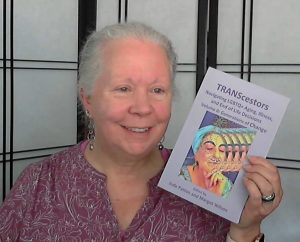 TGForum: The TRANScestors book series have been a huge success. New volumes are being planned?
TGForum: The TRANScestors book series have been a huge success. New volumes are being planned?
Ms. Wilson: Yes. The TRANScestors series has been a joint editorial effort between Jude Patton and me. Originally planned as a single volume, TRANScestors: Volume I, Generations of Hope was published in September 2020. However, Jude, who has done all of the heavy lifting, has been so successful in recruiting contributors that we published a second volume, TRANScestors: Volume II, Generations of Change, in December 2020. Based on the success of the first two volumes, we are continuing to recruit contributors for Volumes III and IV, Generations of Pride and Generations of Challenge, respectively. The call for participation in future editions of TRANScestors (along with calls for participation in two other edited volumes on being non-binary and on companion animals for LGBTQ+ people) can be found on our website.
TGForum: Do you only collaborate with published authors?
Ms. Wilson: No. I am happy to support authors who have never been published. Again, for me, the emphasis is on getting stories out into the world. My editorial standards are high (I want to publish excellent books), but I am more than happy to work with authors to ensure that a quality product is available to readers.
TGForum: How can authors of transgender-themed books contact you about publishing their manuscripts?
Authors can contact me through the TransGender Publishing website, where there is a contact form. Or they can email me directly.
Like to make a comment? Login here and use the comment area below.
Category: Transgender History


